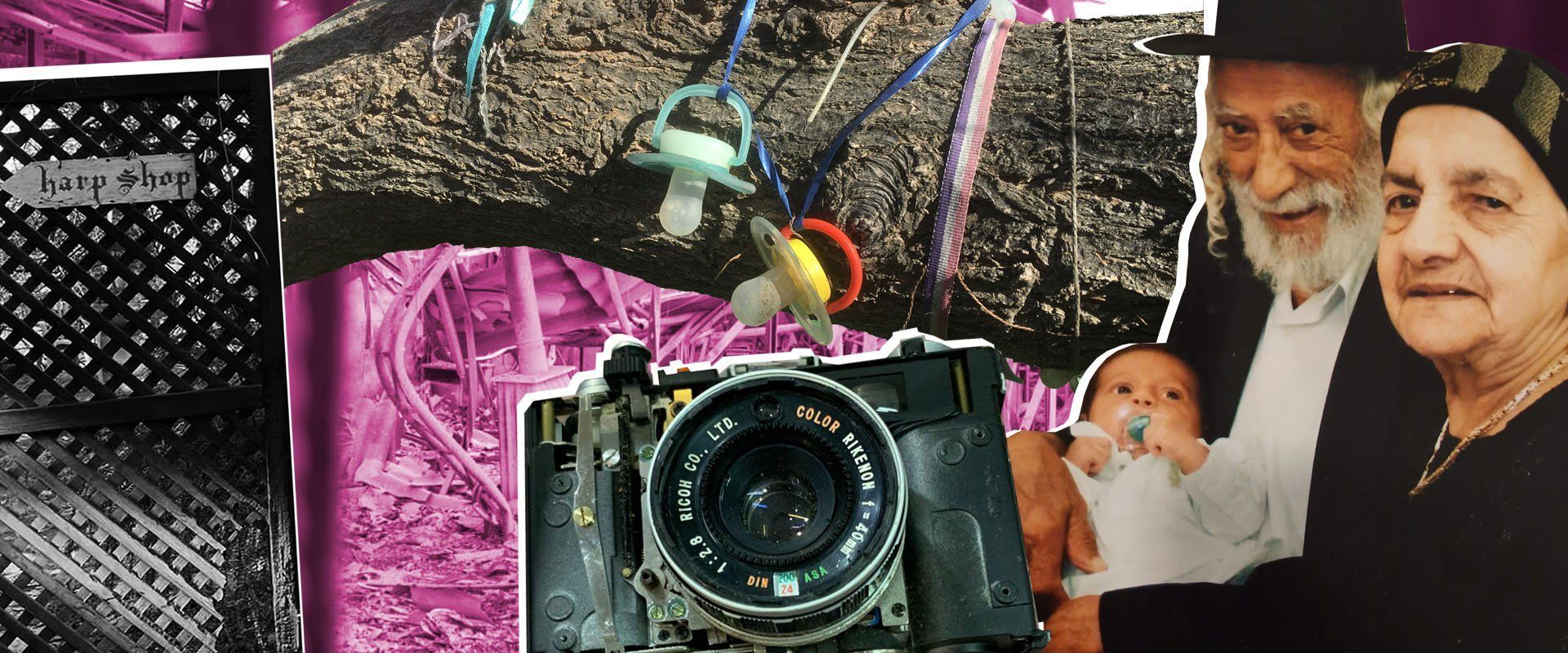
This is our final episode of the season, and it has been quite a journey. We began with our day at the Y, and have since explored all kinds of hidden corners of Israeli society: We’ve delved into the worlds of Israeli pork and Kosher Korean kimchi. We’ve excavated a 2000-year-old mikveh in Hanaton and nearly touched the surface of the moon with a blue-and-white rover. We’ve visited Shirley the turkey on the Freedom Farm in Olesh, entered chicken coups in Umm el-Fahm and searched for wild boars in Haifa. We’ve followed a season of women’s volleyball in Nazareth and the unlikely process of regrowing a foreskin. We’ve recorded at shatnez labs in Bnei Brak and date farms outside of Jericho, and – in our most recent episode – we told the heartbreaking tale of the 2001 suicide bombing at Sbarro.
We’re now heading into many months of production, during which we’ll research, record and produce stories for our next season, Season Seven. But as our way of saying goodbye to this season, we bring you four stories devoted entirely to things that are ending, going out of business or style, or coming to a close.
Every few years, once its warehouses of unclaimed lost-and-found items fill up, the Israeli police becomes Sotheby’s for a day. Back in November 2021, Adina Karpuj attended an unusual auction, but came home with none of the hundreds of “kosher” cell-phones, shtreimels, battery-less electric bikes or industrial ovens(!) that were up for grabs.
No matter who we are, where we live, or what religion we practice, there are ceremonies and rituals that accompany us from birth to death (and, in some cases, beyond). Many of these rites of passage are a source of much joy and anticipation, but some – such as the one Tanya Huyard observed at Jerusalem’s “pacifier tree” – elicit more ambivalent feelings.
On the afternoon of August 15, 2021, the hills of Jerusalem were covered in smoke. It was, it would turn out after the fire was quelled five days later, one of the most devastating wildfires in Israel’s recent history. Roughly 14,000 dunams of forest had turned to ash, and so too had Micha and Shoshanna Harrari’s wooden harp workshop in Ramat Raziel. A month after the blaze, Elie Bleier went to meet them, and heard how this hippie couple plans to cope with their loss.
At the very end of Allenby Street in Tel Aviv, right before the city spills into the Mediterranean Sea, there’s a hole-in-the-wall store called Photo Doron. It’s a repair shop for film cameras – one of the last of its kind, like a fossil of a different era. Skyler Inman stepped in and discovered why – though his profession is closer to appearing in history books than in newspaper headlines – 79-year-old Ya’akov Barzilai isn’t planning on going anywhere anytime soon.
Shlomo and Sarah Adani were married for longer than most people are alive. They grew up together in the small village of Dalah in Yemen, and were practically inseparable for more than eight decades. Renana Adani, their granddaughter, told Yoshi Fields about a partnership that began before the invention of color TV, atomic energy and super glue, and ended – in Jerusalem – within the span of 48 hours.
Zev Levi scored and sound-designed the episode with music from Blue Dot Sessions, Shoshanna Harrari and Tamar Attias. Sela Waisblum created the mix. Thanks to Tomer Nissim, Aviv Weiss, Ehud “Oudoul” Cappon, Sheila Lambert, Erica Frederick, Jeff Feig and Joy Levitt. A special thanks to Dina Rabhan.
This is Israel Story’s final episode with Tablet Magazine. We will be announcing our new home in the upcoming months. But this is a time to say thank you Tablet, which has been our home since 2014. Our friends at Tablet believed in Israel Story when it was just an idea on paper, and together we have not only produced six full seasons but have also grown to become the most-listened-to Jewish podcast in the world. It has been an honor and a privilege to be part of the Tablet family, and to have had such an incredible model of first-rate journalism. Thanks to Morton Landowne, Alana Newhouse, Wayne Hoffman, Julie Subrin, Sara Ivri, Elissa Goldstein, Esther Werdiger, Kurt Hoffman, Mark Oppenheimer, Stephanie Butnick, Gabe Sanders and Josh Kross. We will miss you very much.
The end song, Yachol Lihiyot She’Ze Nigmar (“It Might Be Over”), was written by Yehonatan Geffen, composed by Shem Tov Levi and sung by Arik Einstein.